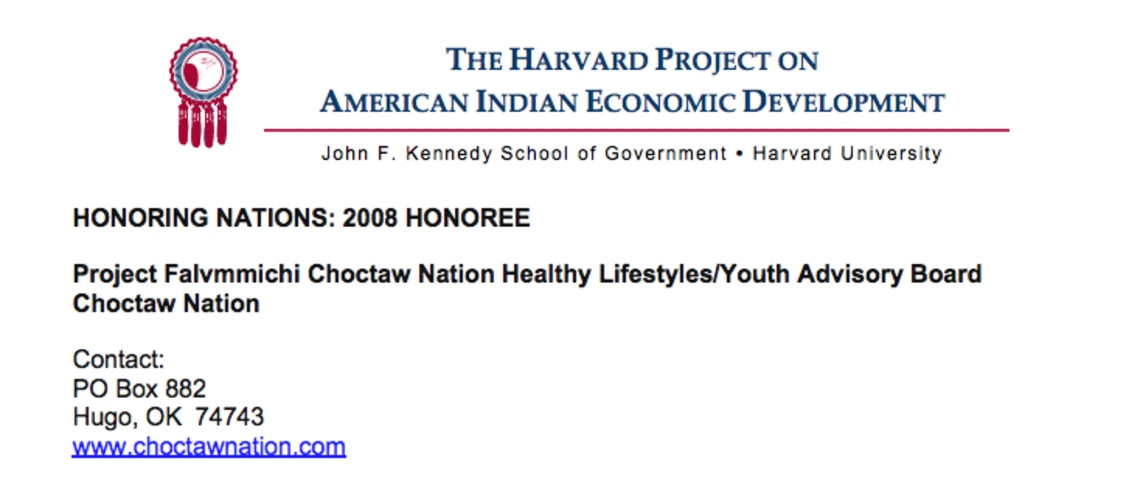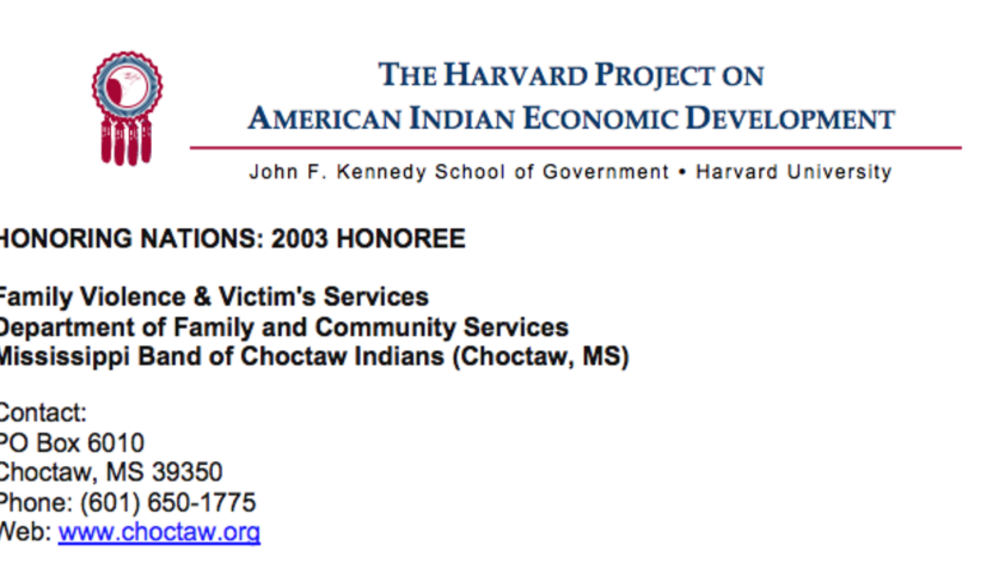"It is not cool to hit or be hit" is the straightforward motto of Project Falvmmichi, a school-based program of the Choctaw Nation designed to tackle the problem of domestic violence. The program teaches elementary school students positive ways to deal with anger and resolve conflicts. Today, more than 300 teen mentors work with second graders in over thirty public schools. Violent behavior harms the Choctaw Nation’s citizens, families, and future–but through Project Falvmmichi, the Nation is building intolerance for violent behavior from the ground up.
Additional Information
"Project Falvmmichi." Honoring Nations: 2008 Honoree. Harvard Project on American Indian Economic Development, John F. Kennedy School of Government, Harvard University. Cambridge, Massachusetts. 2009. Report.



